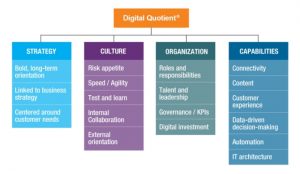Hello, I used to have a high-powered career.
Now I am a 48-year-old lifeguard!
Some may call this an existential holding pattern, or an abdication of ambition. I call it a great way to serve my community while learning key lessons about leadership and team dynamics.
Although I’m sure that the lure of $11 an hour—plus the chance to twirl your very own whistle and yell “WALK!” dozens of times a day—will tempt many of you to follow in my footsteps, please allow me to save y’all the trouble. Here are four ways that lifeguarding can make you a better manager wherever you work now.
Respect the break
When the heat index hits 100+ and the sun is reflecting so hard off the water it burns the underside of your chin, even the toughest lifeguards can get a little woozy. That’s why it’s so important for our aquatics director to make sure we’re using our breaks wisely: sitting under an umbrella, reapplying sunscreen, drinking extra water, refueling with a salty snack. It’s the only way to ensure we’re in tip-top lifesaving shape when we get back on the stand.
In any work environment, a good manager understands that people need time in the metaphorical shade. It’s crucial that you protect your team’s ability to disconnect during personal time—including nights and weekends!—and that you model the same behavior whenever you get the chance. Switching off isn’t easy in this always-on era, but you’ve got to help folks hold the line. A well-rested team will always respond better in emergencies.
Hold everyone to the same standards
We’ve got strict rules for safety at the pool, but they only work if everyone enforces them consistently. If teenagers get to roughhouse in the toddler pool because no one feels like stopping them, it’s harder to blow the whistle on that behavior in the future. Likewise, if there’s one guard who always intervenes—even when it’s unpopular—it’s likely that guard will feel pretty alienated, in ways that breed resentment towards colleagues, pool members, and their bosses.
As a manager, it’s crucial that you collaborate with your team in upholding standards, whatever they may be. Don’t hand down expectations by fiat: Explain why those expectations matter, and take an active role in making sure they’re met. If you’ve got an employee who’s always attentive while colleagues are slacking, don’t let them feel like a buzzkill. Acknowledge their hard work, and then pull the rest of your staff up to their level.
The customer is not always right
When the pool rules do get enforced, there’s always going to be one parent who doesn’t understand why their precious angel is being forced to sit out just because they hit their sister in the head with a nerf football for the millionth time. If an irate mother storms off to speak to our supervisor, we have to trust that the aquatics director will support our decision to sideline their unruly offspring—or we’ll lose all authority moving forward.
No matter what field you work in, there’s always going to be a moment when your team needs you to stand up for them. Don’t scapegoat your subordinates to earn easy points with clients, or to avoid an uncomfortable conversation with your superiors. Your team is an extension of you. If you’ve trained them properly, you have to trust their instincts. If a mistake occurs, you have to take responsibility. Use challenges as opportunities to strengthen your squad, not undermine it.
Avoid fake fun
A lifeguard’s job is more than watching the water: there’s lots of manual labor involved. These tasks are often not enjoyable—pulling human hair out of the pool vacuum, anyone?—which means management is always coming up with some kind of “fun” way to bribe us into doing our jobs, such as a popsicle party or whatever. This approach rarely leads to long-term success, because the “fun” is revealed to be thinly veiled coercion, and cleaning gross stuff still sucks.
Boring and thankless things need to happen in every work environment. But this isn’t Mary Poppins, and you do not need to make the job a game. In fact, you’ll earn more respect if you come right out and acknowledge that some tasks are unpleasant or humdrum, while being clear about why they’re necessary for the success of the larger project. Along the way, get to know your individual team members. Empower them to take ownership of areas that best correspond to their strengths. Reward them with things they really value, like better pay, more time off, and leadership opportunities. And then you can throw a popsicle party, if everybody really wants one.
(10)
Report Post






